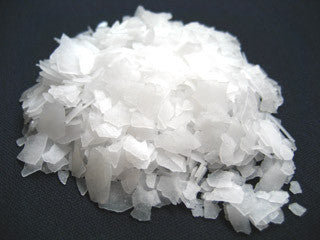MAGNESIUM CHLORIDE HEXAHYDRATE
99% Technical Grade
What is Magnesium chloride hexahydrate
Magnesium chloride hexahydrate is a naturally occurring salt with the formula MgCl2 6(H2O). It is mostly produced from sea water and in particular the Dead Sea. It is a colourless to white, odourless salt. The main uses for magnesium chloride are in the paper, textiles, cement and refrigeration industries. It also finds major applications as a de-icer, Ice Melt and a water treatment in aquariums.
- High quality magnesium chloride from the Dead Sea
- Free from phosphate, bromides and ammonia
- Dissolves quickly to provide clear solution
Key Properties of Magnesium Chloride
- Appearance: White or colorless crystalline solid; hygroscopic (absorbs moisture from the air).
- Solubility: Highly soluble in water.
- Melting Point: Decomposes at high temperatures, losing water if hydrated.
- Source: Naturally occurs in seawater, salt lakes, and mineral deposits like carnallite.
Common Uses of Magnesium Chloride
1. De-icing and Anti-icing
- Application: Used to melt snow and ice on roads, sidewalks, and other surfaces.
- Why: It lowers the freezing point of water, making it effective at preventing ice formation.
- Benefits: Less corrosive than sodium chloride (table salt) and environmentally safer in many cases.
- See below for more information.
2. Dust Control
- Application: Applied to unpaved roads, construction sites, and mining areas.
- Why: Attracts moisture, binding dust particles to reduce airborne dust and improve visibility.
3. Agriculture
- Soil Amendment: Provides magnesium, an essential nutrient for plant growth, particularly in soils deficient in magnesium.
- Promotes plant growth by improving photosynthesis and nutrient absorption.
4. Industrial applications
- Magnesium Production: Acts as a precursor in the production of metallic magnesium.
- Chemical Manufacturing: Used in the production of other magnesium compounds, such as magnesium hydroxide and magnesium carbonate.
- Textile Industry: Stabilizes dyes and improves dyeing processes.
- Oil and Gas Industry: Used in drilling muds and as a weighting agent to stabilize wellbores.
- Used to make sorrel cement.
5. Health and Wellness
- Therapeutic Baths: Used in Epsom salt or magnesium chloride flakes for muscle relaxation and skin health.
- Magnesium Supplementation: Sometimes used as a dietary supplement to correct magnesium deficiencies, often in the form of magnesium chloride tablets or solutions.
6. Water Treatment
- Wastewater Treatment: Helps remove pollutants by precipitating unwanted elements.
- Coagulant: Used in some water purification processes.
- Aquariums - see below for more information.
8. Construction
- Cement and Concrete Additive: Improves the setting properties of certain cements and concrete formulations.
Benefits of Magnesium Chloride
- Environmentally Friendly: Less harmful to plants and aquatic life compared to other chloride salts.
- Versatile: Used across diverse industries due to its chemical stability and hygroscopic nature.
PLEASE NOTE: This product is not for human or animal consumption.
MAGNESIUM CHLORIDE IN MARINE AQUARIUMS:
Magnesium chloride hexahydrate is for adding magnesium to sea water. Severely low values of magnesium (900 mg/L or below) can cause low pH values and an inability to maintain proper alkalinity and calcium values. If magnesium becomes too low, coral growth will stop and followed by a decline in coral health. Carbonates and calcium are essential for all growth of corals, coralline algae, clams and invertebrates. Maintaining the correct magnesium values is very important and is indirectly responsible for coral and coralline algae growth by making it possible to maintain correct calcium, alkalinity and pH values. The magnesium content must often be increased, as shortfalls in the content can arise for various reasons. The normal magnesium content is around 1.30 - 1.40 mg/litre (1300-1400 ppm). To increase the magnesium content you need magnesium chloride hexahydrate or a mixture of magnesium chloride and magnesium sulphate (ratio of 7:1).
How to dose aquarium with magnesium chloride
50g will raise Magnesium levels by approximately 60ppm in 100 litres of salt water. It is not recommended to increase Magnesium levels by more than 60ppm per day. Simply mix the required amount into a few litres of Reverse Osmosis Water, once dissolved, slowly add to your tank in an area of high flow, preferably over a period of an hour. Alternatively add to your evaporation top up water and top up as normal.
Magnesium Chloride as a de-icer / Ice melt
Magnesium chloride is considered by some to the best overall ice melting compound. It is safe to use around plant life and it is less corrosive than other ice melting compounds. Magnesium chloride is a hygroscopic compound meaning it absorbs moisture. This allows the magnesium chloride to dissolve into a brine solution very quickly hence melting ice and snow very quickly. Relatively harmless to plant life, magnesium chloride is an environmentally friendly alternative for melting ice and snow. Magnesium chloride can effectively melt ice and snow in temperatures as low as -30 degrees Celsius.
Magnesium chloride does not produce any residues that can damage carpets etc.
The product is simply applied by sprinkling the powder over the ice. When used as a solution magnesium chloride has the added advantage of preventing ice forming on surfaces when applied before freezing. This solution is made up by dissolving 30g per litre of water. It can be sprayed at a rate of approx 5 sq m per litre.
Properties of magnesium chloride hexahydrate
- CAS No.: 7791-18-6
- EINECS: 232-094-6
- Formula: MgCl2 6H2O
- Purity: 99%
- Mol weight: 203.3
- Density: 1.569
- Melting point: 117C
- Water solubility: 2350 g/L (20 C)
- Appearance:: White flakes
- pH: 8.4 270g/l at 20C)
Health & safety
Not a hazardous substance or mixture according to Regulation (EC) No. 1272/2008.
